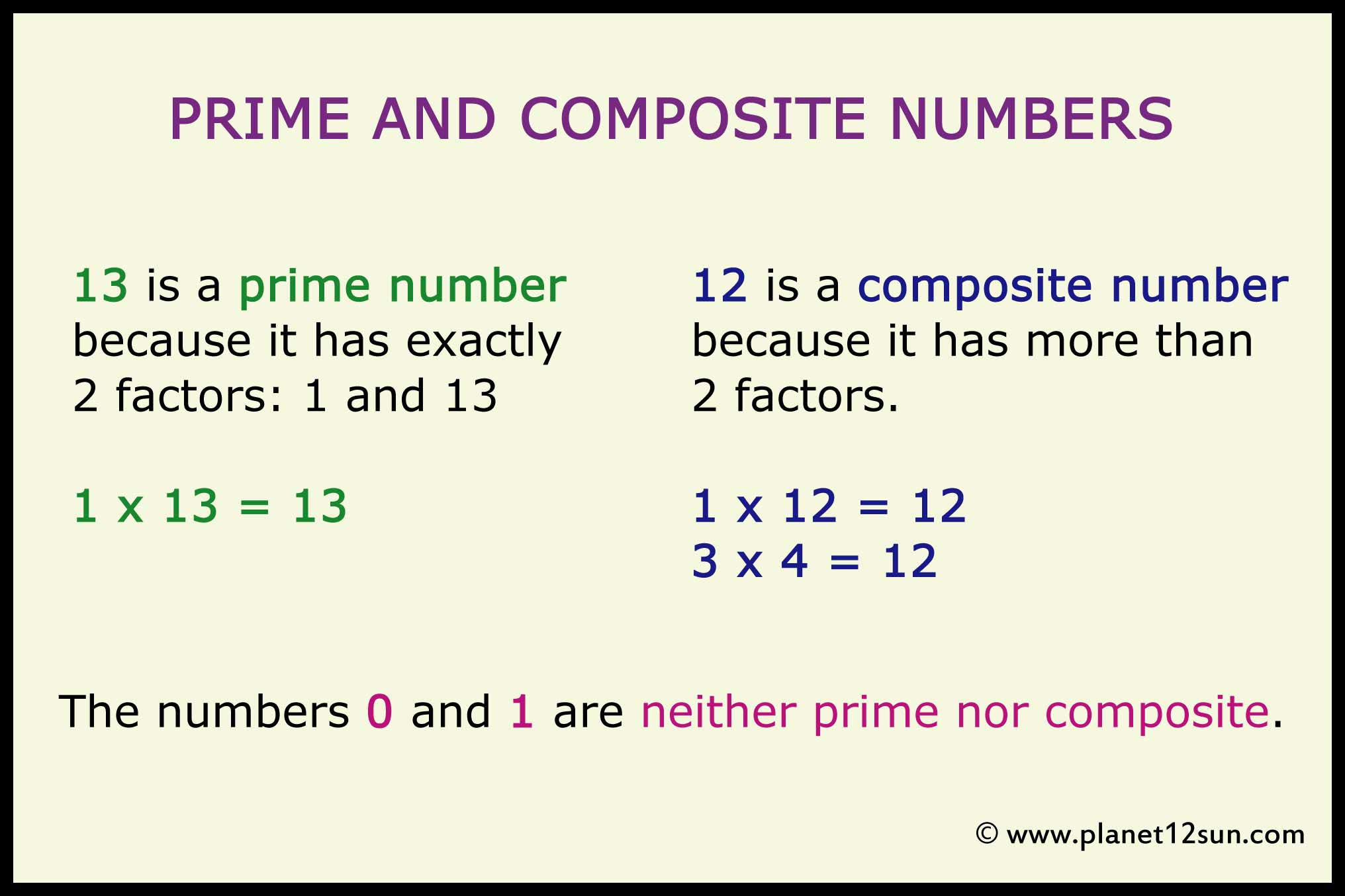
In Mathematics, there are two types of composite numbers. In other words, numbers opposite to prime numbers with more than two factors are called composite numbers. It would help you to make numeric concepts easier for your kids to remember.Ĭomposite numbers are those numbers that are divisible by a number other than one and the number itself. Let’s discuss the vital topic of composite numbers excitingly. Introducing numbers to your kids at tender age is essential, but did you find an easy way yet? Do you believe that number concepts can help your children academically? Numbers are the basis of mathematics various kinds of numbers exist in mathematics, such as natural, prime, odd, cardinal numbers, etc., which kids must comprehend. Our world can’t function without understanding the functionality of numbers.

What Will Be the HCF of Two Composite Numbers?.How Many Composite Numbers Are Between 1 and 100?.You have to have 1, yourself,Īnd some other things. In order to beĬomposite, you have to have more than two factors. But in order toīe prime, you have to have exactly two factors. Technically, because it only has 1 as a factor. It's going to have 1 and itself and something else. Because by definition, anĮven number is divisible by 2. And so it only has twoįactors, 1 and itself, and that's the definition But there reallyĪren't any others that are divisible into 2. That are divisible into 2, well, 1 times 2ĭefinitely works, 1 and 2. So these are all of theįactors of 24, clearly more than just one and 24. And 4 times 6- had justĮnough space to do that.

We don't actually have to find all of the factors Natural counting numbers that we can actuallyĭivide into 24 without having any remainder. It as the natural numbers or the whole numbers,Īlthough 0 is also included in whole numbers. So let's thinkĪbout all of the- I guess you could think of That and neither- we'll see an interesting case Is a natural number that has more than justġ and itself as factors. It is, the only way to get 3 as a product of other Natural numbers that are divisible into 3- 1 and 3. The counting numbers, 1, 2, 3, 4, 5, 6, so on and so forth. Review, a prime number is a natural number- so one of Numbers are prime, composite, or neither.


 0 kommentar(er)
0 kommentar(er)
